Pollution
Latest
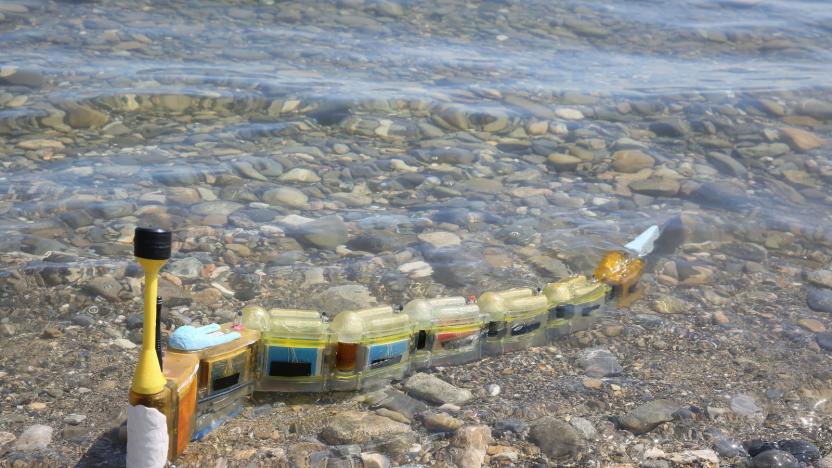
Modular robotic eel hunts for sources of water pollution
We already have ways to measure the levels of pollution in bodies of water, but an eel-inspired robot can do the job faster and more effectively. The researchers from the Swiss Federal Institute of Technology and other institutions have created a modular robotic eel that can swim through contaminated water to pinpoint sources of pollution. Each module is equipped with a different type of sensor, including biological ones, like fish cells, live crustaceans and modified bacteria. Scientists can customize the eel for different locations by choosing the modules they need and leaving the others out of the configuration.
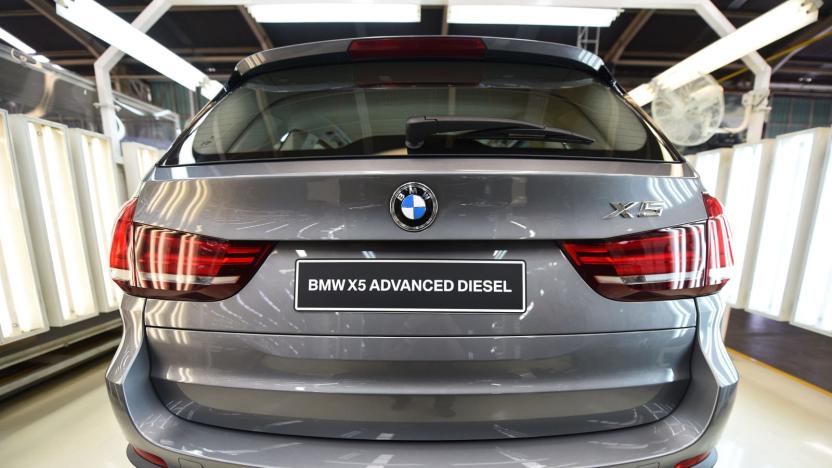
BMW denies conspiring with rivals on diesel emissions systems
VW isn't the only German automaker reeling from the effects of diesel emissions scandals. BMW is denying Der Spiegel allegations that it not only colluded with Daimler and the Volkswagen Auto Group (including Audi and Porsche) on the designs and prices for AdBlue diesel emissions treatment systems, but fell short of European exhaust standards. While the newspaper claims that BMW's thousand-plus meetings with rivals amounted to a "cartel," BMW insists that the meetings were simply meant to create a Europe-wide infrastructure for AdBlue. It also claims that the technology (which injects urea into the mix to help reduce emissions) meets the latest European requirements, and that it can update the software on older cars to meet that standard.
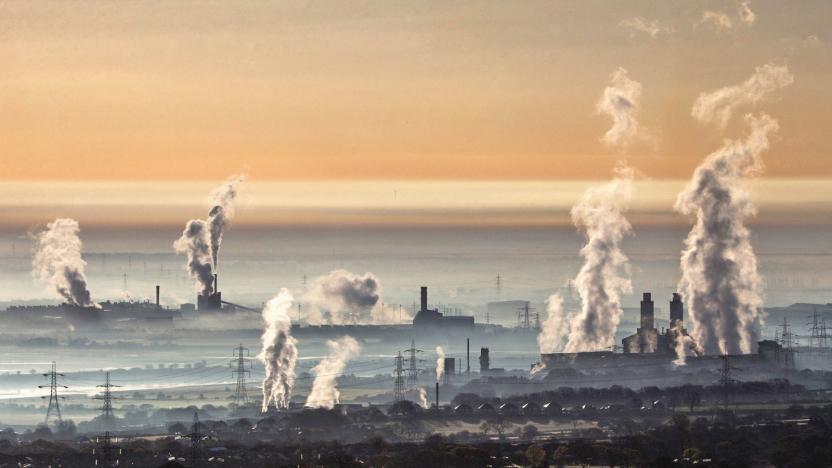
Genetically modified yeast mops up heavy metal pollution
Environmental scientists dream of eliminating pollution with natural resources, but that's tricky when it comes to heavy metals. Plants won't work for cleaning polluted water, and only some of them grow large enough to absorb those toxic materials. Researchers may have a relatively simple answer to the problem, though: genetically engineered baker's yeast. Their modified organism uses a cell membrane 'anchor,' and peptides that bind with metals like cadmium, copper and nickel to absorb their ions. The result? The best yeast strains can mop up 80 percent of metal ions without nasty effects -- you'd just have to scoop up the yeast after a cleanup operation.

A city covered in trees will fight air pollution in China
It's easy to find buildings laced with greenery in order to reduce their CO2 footprints. But what about an entire city? That's on its way. Construction has started on Liuzhou Forest City, a 30,000-person urban development where every building will be covered in pollution-reducing plants (over 1 million of them, in fact). They'll also rely on geothermal energy for air conditioning and pack solar panels to collect their own energy. Logically, the transportation network will be green as well. It'll revolve around electric cars and a central rail line that links the experimental space to the city of Liuzhou.

US sues Fiat Chrysler over diesel emissions cheating
Volkswagen definitely won't be the only major automaker hauled into court for cheating on diesel emissions tests in recent years. In the wake of EPA accusations from January, the US Department of Justice has sued Fiat Chrysler for allegedly using a combination of defeat devices and software to trick regulators into thinking its 3.0-liter EcoDiesel engines are... well, eco-friendly. Reportedly, 2014-2016 model year Ram 1500 and Jeep Grand Cherokee vehicles (104,000 in total) violated the Clean Air Act by meeting emissions rules in EPA testing, but spewing "much higher" nitrogen oxide levels in certain everyday driving situations.

Sorry, you can't plant enough trees to offset fossil fuels
Ever planted a tree to feel better about your environmental footprint? It's a good idea, but it might not have as much of an effect as you'd hope. A simulation-based study has determined that it would be utterly unrealistic to plant enough trees to offset humanity's CO2 emissions as they are -- the plantations would need to be so big that they'd "eliminate most natural ecosystems" or cut into food production. Even under the reductions from the Paris Climate Agreement, you'd still have to replace natural ecosystems on an area more than a third the size of the world's forests. The most viable option involving trees would require both "ambitious" emissions reductions and improvements to both nurturing the plants as well as capturing their CO2.
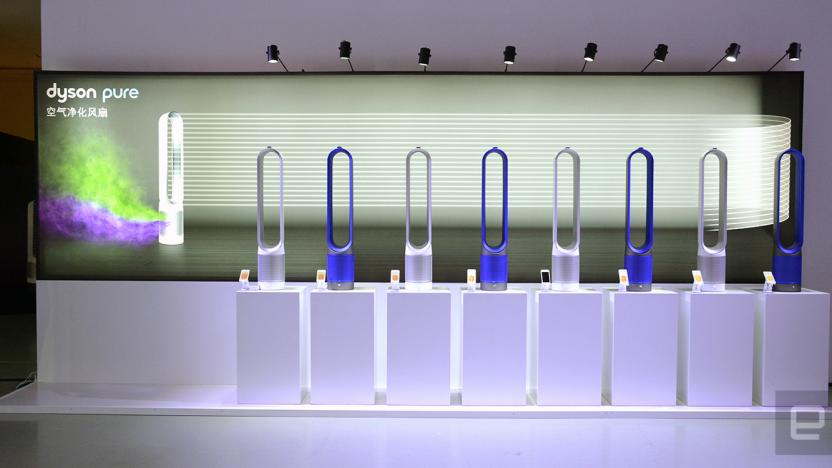
Dyson's updated air purifiers remove more harmful gases
It's been a little over a year since Dyson launched its first connected air purifier, the Pure Cool Link, and to celebrate this occasion, the company is about to update its entire line of air purifiers with improvements aimed at the Chinese market. Well, what's going to be different is really just the replaceable cylindrical glass HEPA filter: the new version's inner layer will pack three times more specially treated graphite crystals than before, which helps remove more gaseous pollutants (and odors) in addition to the usual particulates as small as PM 0.1.
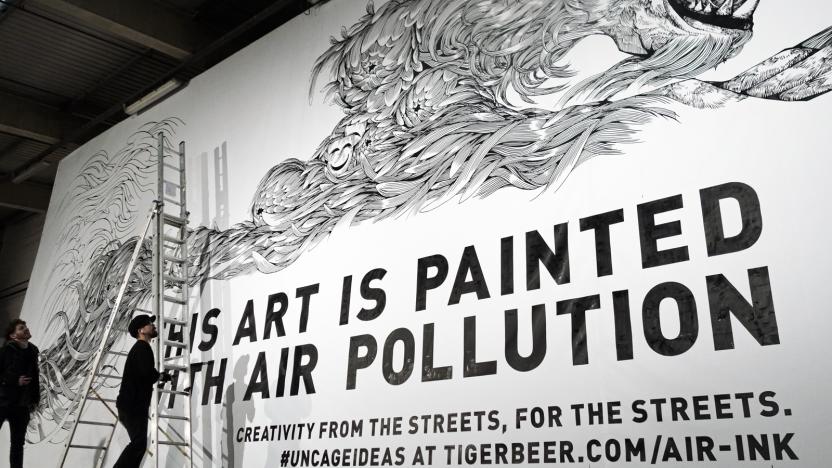
Air pollution makes surprisingly good art supplies
Plumes of diesel exhaust contain a mixture of things both nasty and harmless. A lot of it, however, is carbon. Carbon can be useful and (as you might recall from school) is often jet black in color. Start-up Graviky has created an exhaust filter that can pull 95% of the carbon soot from diesel exhausts, and then transform this into useable, purified, black ink or paint. The result is what co-founder Anirudh Sharma calls Air-Ink, and it's already being used in markers and oil-based paints. The process is far more sustainable than typical methods for making black carbon ink, which requires directly burning fossil fuels. The project is turning something we don't want, air pollution, into something we do: art. Oh, and billboard ads.
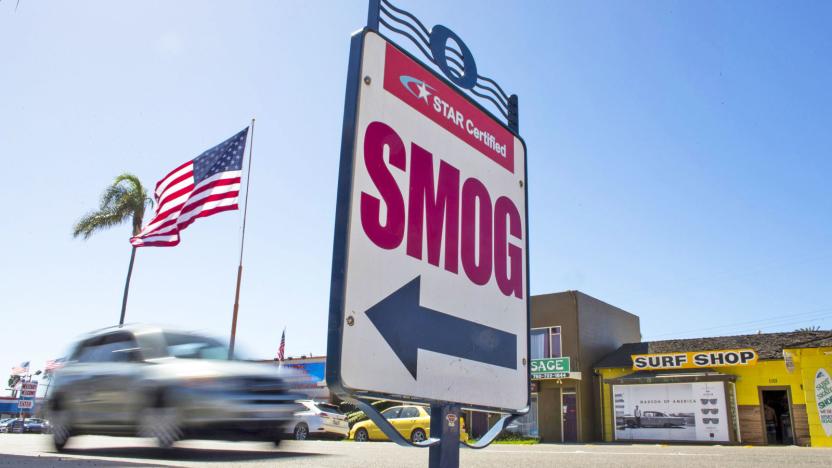
California's new car emission standards defy the White House
The Trump administration may be rethinking car efficiency regulations, but that isn't stopping California from putting its foot down. The state's Air Resources Board has finalized car emissions standards for 2022-2025 that the White House still wants to review, creating the potential for a conflict if federal officials rethink the rules. The Board's Mary Nichols even went so far as to blast car makers for turning to the feds, claiming that they were throwing themselves "on the mercy" of the new US government rather than working with California.
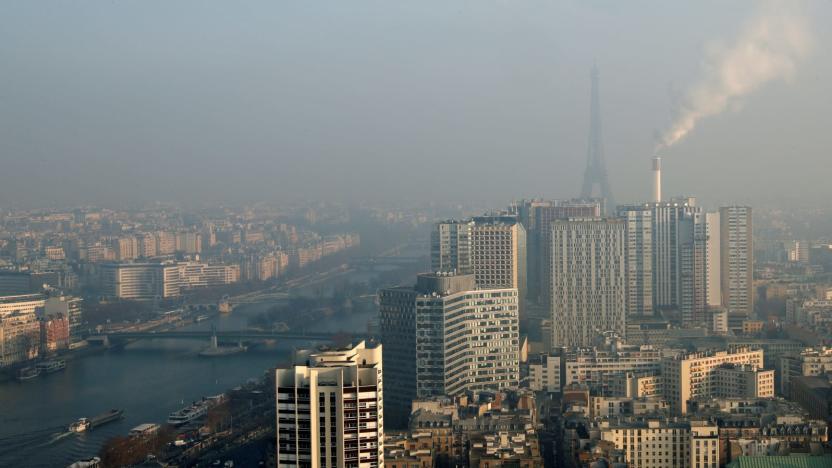
WHO: Pollution is killing millions of children each year
The World Health Organization (WHO) released its first report on children's health and the environment, showing that the effects of pollution are felt most strongly by the very young. Of the deaths of children under five, a quarter are caused by smog, second-hand smoke, inadequate hygiene, unsafe water and other environmental risks. "[Young children's] developing organs and immune systems, and smaller bodies and airways, make them especially vulnerable to dirty air and water," said WHO Director-General Margaret Chan.
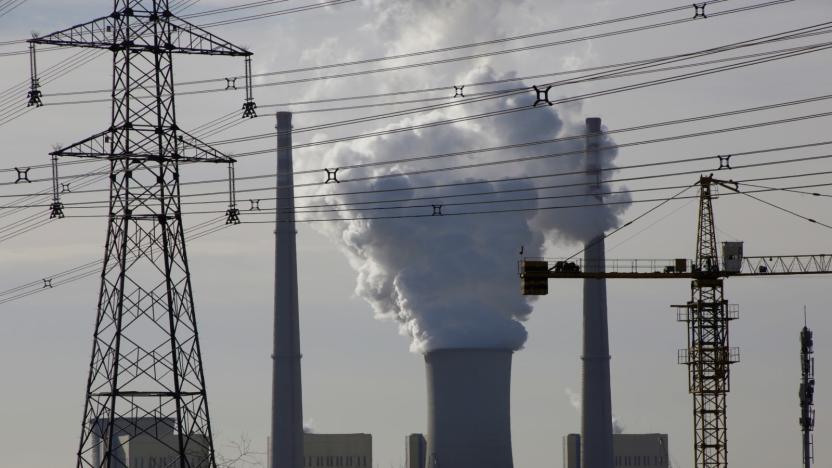
China suspends plans for 85 coal power plants
China is taking some steps to curb pollution (it doesn't have much choice), but one of its most recent steps may be more of a happy accident. The country's National Energy Administration is suspending 85 planned or in-progress coal power plants -- not because they're threats to the environment and public health (which they are), but because they don't fit in with China's latest Five Year Plan. It's targeting a coal capacity limit of 1,100GW, but the plants would have brought it to 1,250GW. While that's still an increase over the current 920GW capacity, it's definitely an improvement.

Emissions cheating scandal expands to France's Renault
The "Dieselgate" pollution scan that started with Volkswagen has expanded in Europe as French authorities are now investigating automaker Renault SA. Three judges will probe possible "cheating on pollution control checks ... with the consequence of making the [vehicles] dangerous to the health of people and animals," Le Figaro reports. That follows a preliminary investigation which concluded that some Renault models were emitting up to ten times the legal amounts of nitrogen oxide (NO2).

The Engadget Podcast Ep 24: The Biggest Lie
Senior editors Edgar Alvarez and Devindra Hardawar join host Terrence O'Brien to discuss the biggest stories of the week, including Facebook's Journalism Project and the Emoji takeover of Monopoly. Then they'll talk about Volkswagen's massive settlement and pending indictments. Plus they'll try to recap Dieselgate without messing up the timeline.

Flow is a wearable that helps you avoid nasty air pollution
While humanity has made strides to cut down its greenhouse emissions, the fact remains: We produce a lot of harmful gases every day. If you live in a city, however, it's easy to forget the quality of the air around you and the impact it might be having on your health. Flow, by Plume Labs, could change that. The tiny air-quality sensor looks like a portable thumb drive with a leather strap that lets you hang it from bags and clothing. It can measure dust, exhaust fumes and other harmful gases, as well as the household chemicals you might encounter indoors.

Flow tracks air quality for crowdsourced pollution maps
You might not have heard of Plume Labs, but you can probably recall their pollution monitoring pigeons that flew over London earlier this year. The part research project, part publicity stunt was designed to drum up interest in a new air quality sensor the company has been working on for two years. Now, it's ready to unveil the final version. The device is called Flow, and it looks like a small thumb drive from a few years back. Inside its grey, aluminium shell you'll find a bunch of sensors for measuring dust, exhaust fumes and other harmful gases, as well as temperature and humidity.
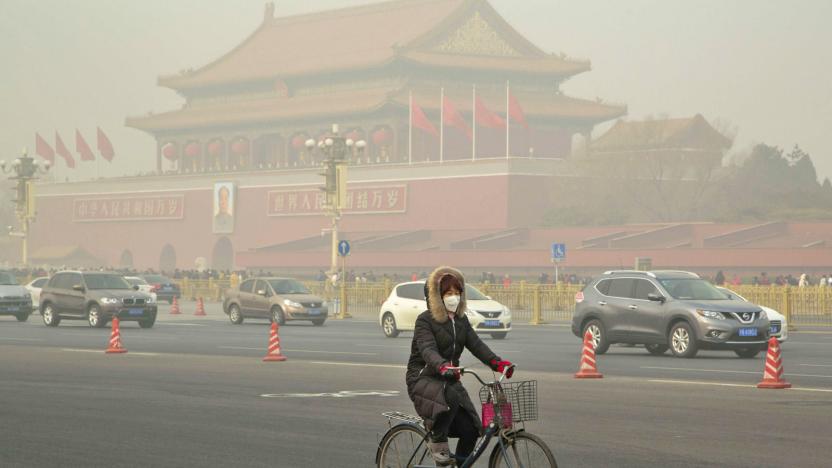
Smog creates havoc in China on New Year's Day
If you happen to be in northern China, your new year didn't exactly get off to a grand start -- and pollution is squarely to blame. Smog levels were serious enough that officials took drastic steps to curb emissions, shutting down large swaths of the transportation network. Tianjin, Beijing's major neighboring city, both closed highways and cancelled over 300 flights at its airport. Beijing itself, meanwhile, axed 126 flights and stopped all buses running to nearby cities. The current conditions are expected to last until Thursday, too, so many of these closures could last for a while.
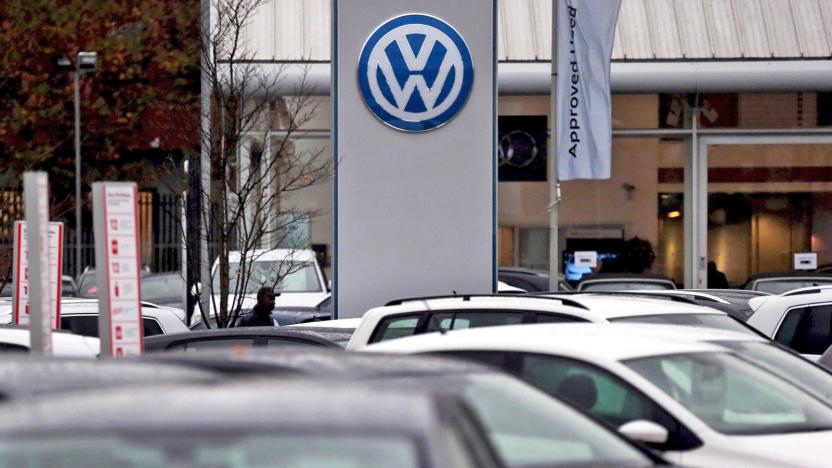
VW to pour $200 million more into an anti-pollution fund
Believe it or not, Volkswagen still isn't done paying for its diesel emissions scandal. Reuters understands that the car maker has agreed to pay over $200 million extra into a US Environmental Protection Agency fund devoted to reducing pollution created by VW's diesel emissions cheating. The company had already agreed to spend $2.7 billion over three years, but the extra money will cover the 80,000 3-liter diesels that violated emissions limits -- previously, it was only accounting for 2-liter vehicles. Barring surprises, the deal could be made official as soon as the 19th.
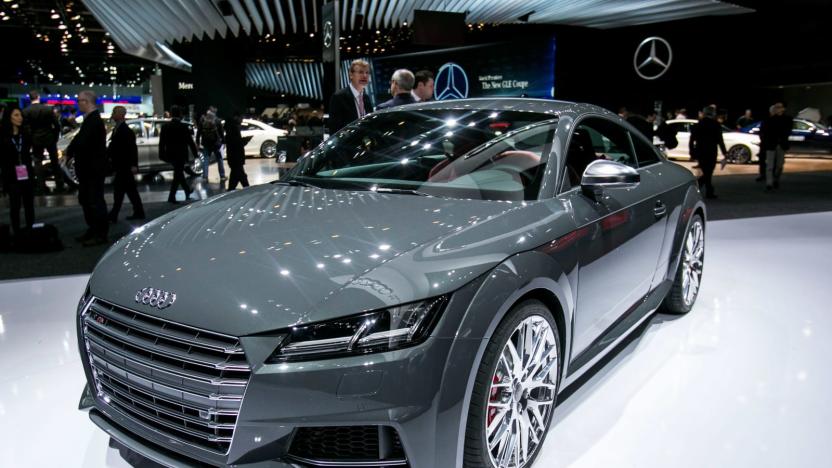
VW says Audi software can distort emissions during tests
No, the Volkswagen Auto Group's emission cheating scandal isn't done unfolding. VW has confirmed earlier reports (including one from Suddeutsche Zeitung) that Audi software can distort emissions during tests. Cars with automatic transmissions can change their shift patterns in a way that lowers carbon dioxide and nitric oxide emissions, making it appear as if the vehicles are more eco-friendly than they are during typical driving. The transmission normally adapts based solely on the driving conditions, VW says.
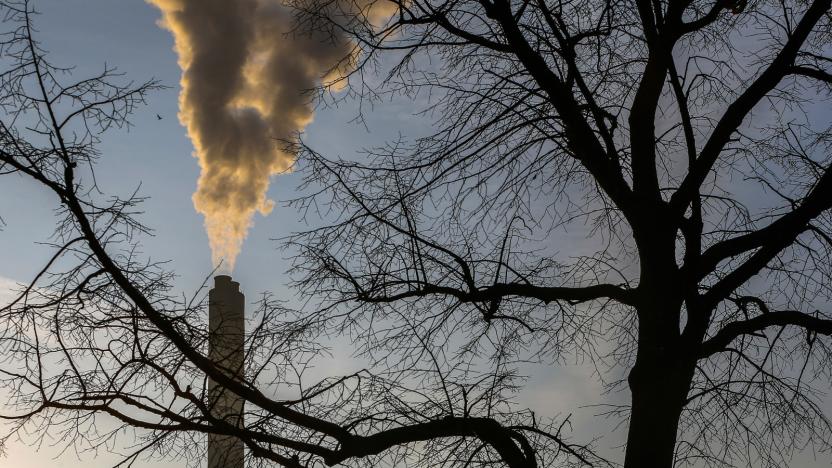
Planet Earth might be the biggest loser under President Trump
Deny it all he wants, Donald Trump did in fact tweet that global warming is a hoax perpetrated by the Chinese to damage American manufacturing. But, let's give him the benefit of the doubt and say that since 2012 his opinion on the matter has evolved. Even if he no longer considers the concept of climate change to be a conspiracy cooked up by China, he still clearly doubts the science, and that will have significant consequences.

Netatmo's home monitor tracks air quality, humidity and more
While it's far from a new idea, home air quality monitoring has seen something of a resurgence of late. Dyson in particular has been pushing pollution awareness alongside its range of purifiers, and now Netatmo is jumping on the trend. The device pictured above may look just like Netatmo's Welcome connected camera, but instead of a lens, the little tower hosts a quartet of environmental sensors instead. The Healthy Home Coach, as it's called, monitors air quality in real-time, as well humidity, temperature and noise.







